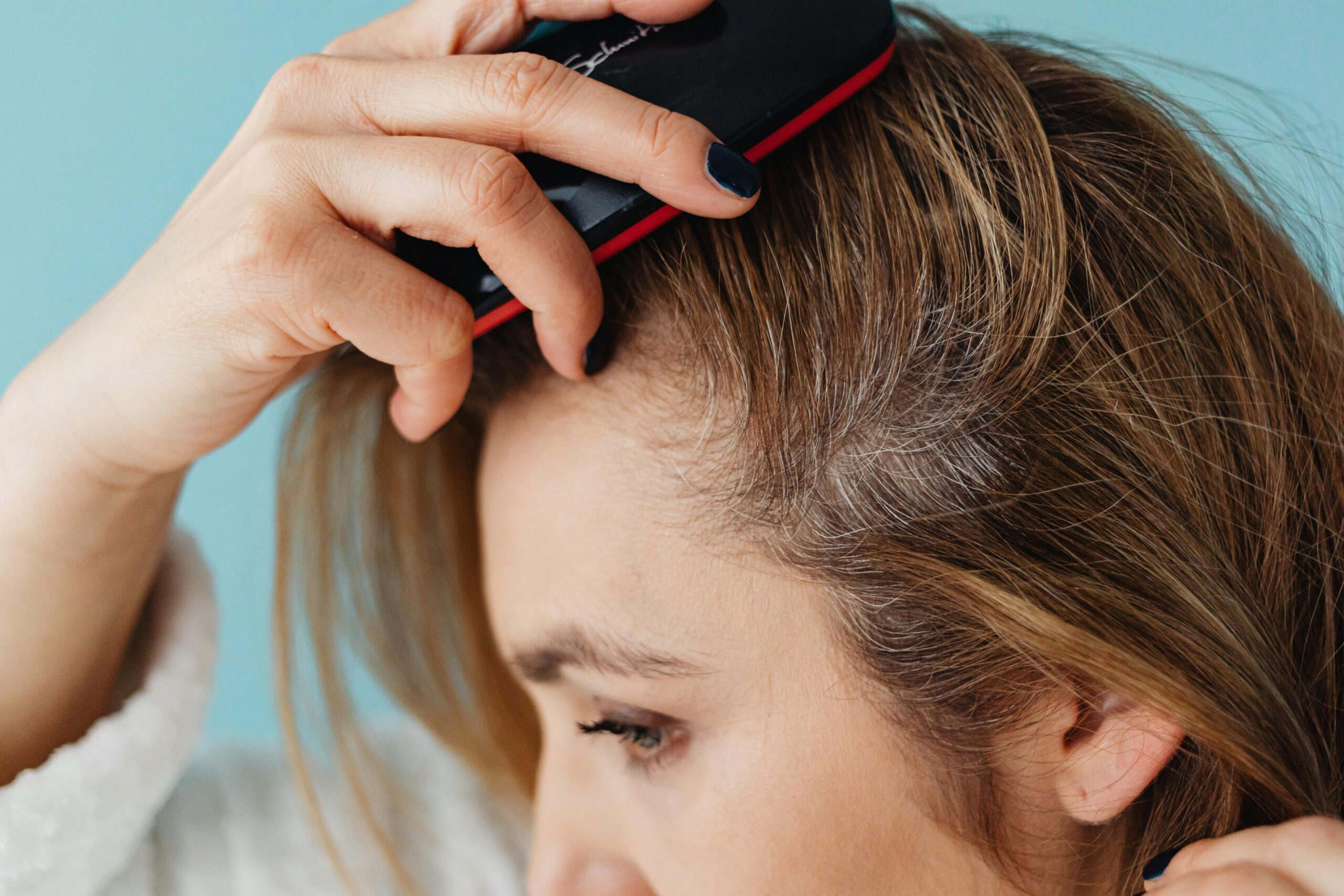Scalp folliculitis can be an irritating and uncomfortable condition, causing small, inflamed bumps on the scalp. Often triggered by bacterial or fungal infections, it can also result from clogged hair follicles or skin irritation. While it’s not usually severe, untreated scalp folliculitis can lead to complications such as scarring or hair thinning. Fortunately, there are several remedies to soothe inflammation, reduce discomfort, and encourage the healing process.
What is Scalp Folliculitis?
Scalp folliculitis is the inflammation of hair follicles on the scalp, typically caused by infections, irritation, or injury. It can present as red or pus-filled bumps that may itch or feel tender. In some cases, the condition may spread or worsen without proper care.
Addressing scalp folliculitis promptly can help prevent further complications, including the development of painful boils or permanent damage to the hair follicles.
Remedies for Scalp Folliculitis
Treating scalp folliculitis requires a combination of soothing remedies, proper hygiene, and targeted treatments. Below are some effective ways to manage the condition and promote recovery.
1. Maintain Scalp Hygiene
Keeping your scalp clean is essential in managing folliculitis. Use a gentle shampoo to remove dirt, sweat, and excess oil without stripping your scalp’s natural moisture. Avoid harsh chemicals or heavy styling products that can clog hair follicles and worsen the condition.
2. Use Warm Compresses
Applying a warm compress to the affected area helps reduce swelling and discomfort. The warmth encourages better blood flow to the scalp, promoting faster healing. Soak a clean cloth in warm water, wring it out, and place it on your scalp for 10-15 minutes.
3. Try Antibacterial or Antifungal Treatments
Topical treatments containing antibacterial or antifungal ingredients can address the root cause of folliculitis. Look for over-the-counter creams or medicated shampoos with active ingredients like ketoconazole, tea tree oil, or benzoyl peroxide. These products help eliminate the bacteria or fungi responsible for the inflammation.
4. Aloe Vera for Soothing Relief
Aloe vera is renowned for its anti-inflammatory and antibacterial properties. Applying pure aloe vera gel to the scalp can reduce redness and itchiness while promoting healing. Ensure the product is free from added fragrances or chemicals to avoid further irritation.
5. Apple Cider Vinegar Rinse
Apple cider vinegar is a natural remedy with antibacterial and antifungal properties. Dilute one part apple cider vinegar with three parts water, and use the mixture as a scalp rinse. This remedy balances the scalp’s pH and helps combat infections.
6. Avoid Scratching or Picking
While folliculitis can be itchy, scratching the bumps can spread the infection and worsen inflammation. Instead, use soothing remedies like aloe vera or hydrocortisone cream to alleviate discomfort.
7. Opt for Loose Hairstyles
Tight hairstyles can irritate the scalp and exacerbate folliculitis. Opt for loose, comfortable styles that allow your scalp to breathe. Avoid tying your hair back too tightly or using accessories that pull on the hair.
8. Consider Oral Medications for Severe Cases
For persistent or severe scalp folliculitis, a dermatologist may recommend oral antibiotics or antifungal medications. These treatments help eliminate stubborn infections and prevent recurrence. Always follow your doctor’s advice when using prescription medications.
9. Eat a Nutrient-Rich Diet
A healthy diet supports skin and scalp health from within. Incorporate foods rich in vitamins A, C, and E, as well as omega-3 fatty acids and zinc. These nutrients help reduce inflammation and promote tissue repair.
10. Avoid Heat and Sweat Build-Up
Excessive heat and sweat can irritate the scalp and worsen folliculitis. Try to keep your scalp cool and dry, especially after exercise. Wash your hair promptly to remove sweat and bacteria.
How to Prevent Scalp Folliculitis
Preventing scalp folliculitis involves maintaining good scalp care habits and avoiding triggers. Follow these tips:
- Use non-comedogenic hair products to prevent clogged follicles.
- Avoid sharing combs, hats, or towels to reduce the risk of infection.
- Wash your hair regularly and dry it thoroughly.
- Protect your scalp from prolonged sun exposure.
Conclusion
Scalp folliculitis can be managed effectively with the right remedies and consistent care. Whether using natural treatments like aloe vera and apple cider vinegar or opting for medicated shampoos, addressing the condition early is key. Maintaining good scalp hygiene and avoiding triggers will also help prevent recurrence. By following these simple steps, you can soothe inflammation and restore your scalp to optimal health.
Frequently Asked Questions (FAQs)
1. What causes scalp folliculitis?
Scalp folliculitis is often caused by bacterial or fungal infections. Other factors include irritation from hair products, tight hairstyles, or clogged hair follicles.
2. Can scalp folliculitis lead to hair loss?
If left untreated, severe cases of scalp folliculitis may damage hair follicles and lead to hair thinning or loss. Prompt treatment helps prevent this.
3. How long does it take for scalp folliculitis to heal?
Mild cases of folliculitis usually heal within a few days to a week with proper care. Severe cases may take longer and require medical treatment.
4. Are natural remedies effective for scalp folliculitis?
Natural remedies like aloe vera and apple cider vinegar can be effective for mild cases. However, persistent or severe folliculitis may require medicated treatments.
5. When should I see a doctor for scalp folliculitis?
Consult a dermatologist if the condition doesn’t improve with home remedies, worsens, or recurs frequently. Persistent symptoms may require prescription medication.



